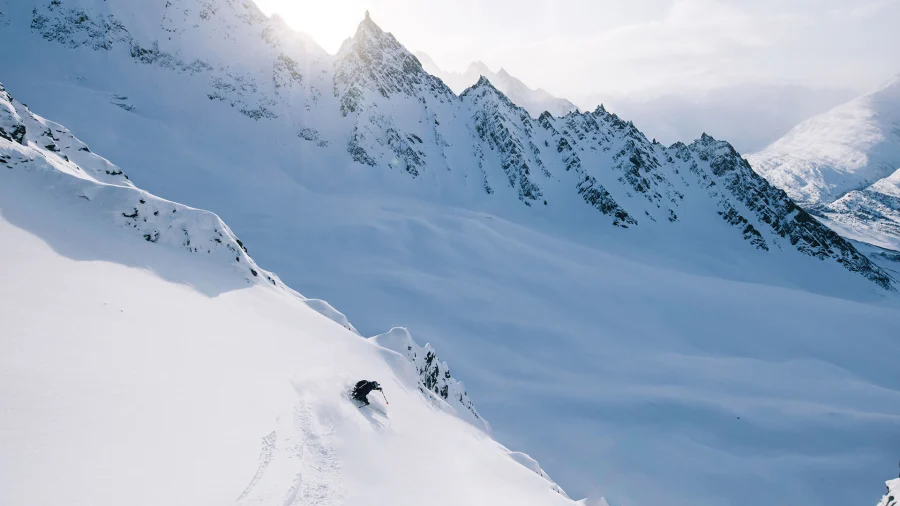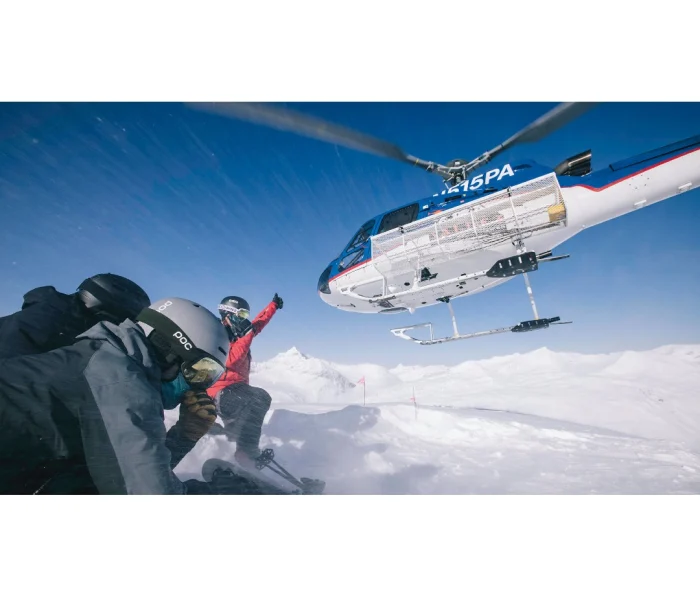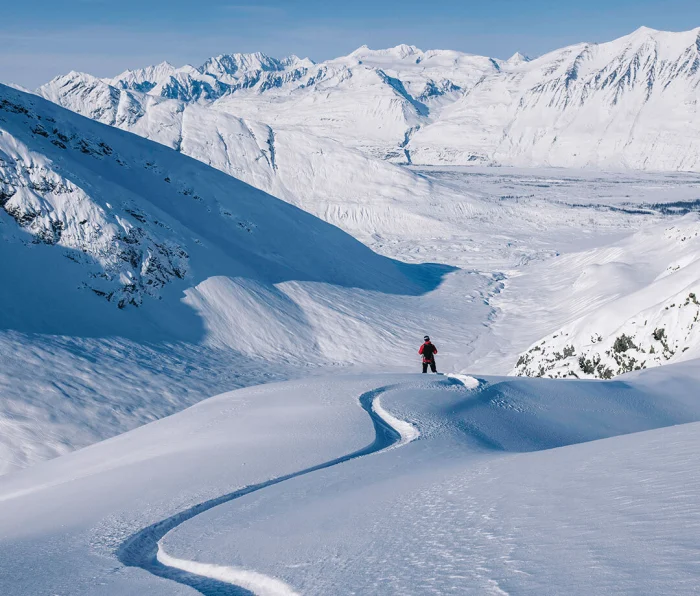

(Andy Cochrane) The perfect heli-ski experience does exist, and it’s in Alaska.
When you’re heli-skiing in Alaska’s Chugach Mountains, “landing” is a relative concept. On our first run of a weeklong trip with Valdez Heli-Ski Guides, our pilot, an unflappable Frenchman named Jean Louis, dangles the front of the helicopter’s cockpit over a 2,000-foot cliff while perching the machine’s tail on a precarious cornice. Before I have a chance to ask “Are you serious?” the veteran pilot casually motions to the great white outside. Alright then. I unbuckle my harness, drop a boot onto one of the skids, duck my head and leap into one of the greatest experiences of my life.
Heli-skiing is addictive. Acres and acres of untracked, knee-deep powder provide a chance to star in your own TGR video. In Alaska, all the emotions—conquest, grandeur, solitude—are multiplied. You scout lines and draw lungfuls of frigid air while taking in the horizon. No people, trees, animals, signs of humanity. Just primal peaks towering over an otherworldly stadium of snow. Then the complete freedom that comes with carving long, swooping lines in hero snow, leaving plumes of snow smoke in your wake. Starting anywhere from 6,000 to 8,000 feet elevation, each run to the valley floor can take 10 to 20 minutes and cover 3,000 to 6,000 feet of vertical drop.

Back in the bird, Jean Louis and our guide, Matt Bohne, scan ridges for safe landing spots and lines to devastate. Wind buff and sun exposure can scuttle good snow, and the difference between fresh pow and variable crunch is the difference between a high five and a trip-ending wipeout. At these northern latitudes the tree line is just a few thousand feet above sea level. Absent growth, big gusts can alter snow surfaces in the time it takes to scarf a roast beef sandwich between runs.
Valdez Heli-Ski Guides sits in the heart of the Chugach Mountains. Tsaina Lodge, the operation’s headquarters, was founded more than 30 years ago by iconic free-skier Doug Coombs, who twice won the World Extreme Skiing Championship. It’s become the premier heli-ski operation in Alaska.
It’s tempting to describe the staff ’s demeanor as nonchalant. But that laid-back attitude is just a mask for the controlled precision of consummate pros. On our last day Matt directs the heli into a new valley with steeper lines than we’d seen all week. At first I didn’t think these were possible to access—a large cornice protects their entrance.

Outside Matt gives us instructions I was expecting but also sort of fearing. We’ll drop over a steep ledge, traverse hard right to avoid a terrifying cliff band, then ski a steep chute to the valley floor, avoiding hard-pack debris from recent slides in the apron.
Matt goes first, calmly makes the wicked traverse and disappears from sight. My nerves return. Knees start vibrating. Caution takes precedence over grace. I execute an awkward butt-scoot to the edge and clumsily lower myself off the eight-foot drop. I make quick work of the traverse, and gain confidence as the hard-pack turns to soft, stable powder. Now back to a world I know well—left, right, left, right.
In good snow, skiing is the same as flying, a place between stability and free fall. I find a rhythm, lean back and let my skis do the rest.
Full article on mensjournal.com
